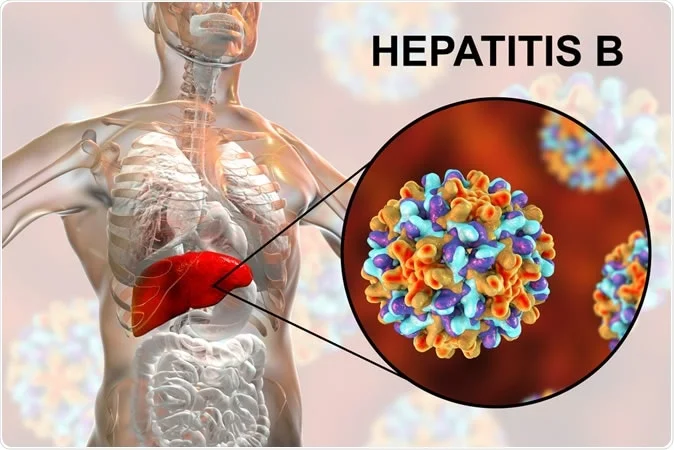Despite the estimation that about 20 million Nigerians are infected with Hepatitis B and C, many of those living with the virus are not aware of their status while low awareness about the disease and stigmatisation remain.
According to a recent report, Nigeria is one of the countries with the highest burden of viral hepatitis with a prevalence of 11-14 per cent for Hepatitis B and 2.2 per cent for Hepatitis C.
Experts have expressed worry that Nigeria may not meet the Sustainable Development Goal (SDG) target 3: 3 which is to halt the transmission of hepatitis globally by 2030 while citing low awareness, inadequate gastroenterologists, stigmatisation and out of pocket expenditure.
They noted that hepatitis is the commonest cause of chronic liver disease in the country with many people being at risk of contracting it, as they emphasised the urgent need for vaccination of the entire population.
Former President of the Nigeria Medical Association (NMA), Prof. Mike Ogirima, submitted that there are no enough gastroenterologists in the country.
He said there are just about 100 of them in Nigeria, a county with over 200 million population, whereas the World Health Organisation (WHO) recommended one doctor to 600 people.
“We have the physicians we call gastroenterologists, under that, we have the hepatologists; people who take care of the liver.
“In Nigeria, we have one doctor to 2000 population. Gastroenterologists may not be more than hundred. WHO recommended that there should be one doctor to 600 people not patients but we have one doctor to 2000 patients in Nigeria, so where are we going to get many herpetologists or gastroenterologists together,” he lamented.
Speaking on the plight of hepatitis patients, Prof. Ogiri blamed inadequate manpower for the delay involved in appointment, saying “if you have hepatitis in Abuja, for you to get a treatment, you have to queue.”
On the way forward, Ogirima tasked government on more trainings and establishment of more medical universities in the country.
According to him, “government needs to train more, retain more and motivate more. What I mean by training more, government needs to establish more medical universities. By retaining more, it means government have to prevent them from going out of the country, engage them as you train them by motivating them and give them good working environment”, he explained.
Also speaking on the prevalence of the disease, the chairman, West African Postgraduate College of Medical Laboratory Science, Dr. Godswill Okara, said “it is quite high, according to a survey done in some years ago, it was speculated that about 20million Nigerians were infected with the virus.
He, therefore, stressed the need for public enlightenment especially since most people who are infected don’t show any symptoms or signs of infection, making it a very dangerous situation.
Okara further noted that a research study has shown that hepatitis is even more infectious than HIV, thus the need for public enlightenment about the prevention, testing and vaccination.
He also urged the government to be on the driving seat as it remains a critical stakeholder as far as public health is concerned and also considering the economic consequence of the disease.
“When you talk about public health, government is very centre and key to it. This is because when you look at the large group of people that are chronically infected, it has very adverse economic and public health consequences. From our study, we noticed that the age rate of 20-50 have the highest prevalence rate and this is the productive workforce.
“By the time the infection progresses to an acute condition and people coming down with liver cancer and all the complications resulting from the infection, it will have a consequence on our economy so government should be alive to its duty and responsibilities, he explained.
Meanwhile, the federal government has acknowledged that awareness about the disease is still very low in the country, with many cases not reported, under-diagnosed and under-treated.
The minister of health, Dr. Osagie Ehanire, who stated this at a press briefing to commemorate the World Hepatitis Day 2022, theme: ‘Bringing hepatitis care closer to you’ in Abuja, also identified stigma and discrimination of those infected as part of the challenges.
He said similar to HIV, the spread of hepatitis B and C is fueled by unsafe sexual behaviour and injection practices, unsafe blood transfusion, harmful practices such as sharing of sharp objects for scarification marks, tattoos etc and Mother-to-Child transmission.
He, however, assured of the ministry’s commitment to taking concrete steps towards ensuring that hepatitis care is indeed brought closer to every Nigerian.
“We have developed our own National Strategic Framework for Viral Hepatitis aimed at achieving the global target of eliminating viral hepatitis by 2030.
“The core pillars identified for attaining the 2030 target include infant vaccination, prevention of mother-to-child intervention, blood and injection safety, harm reduction, diagnosis and treatment.





